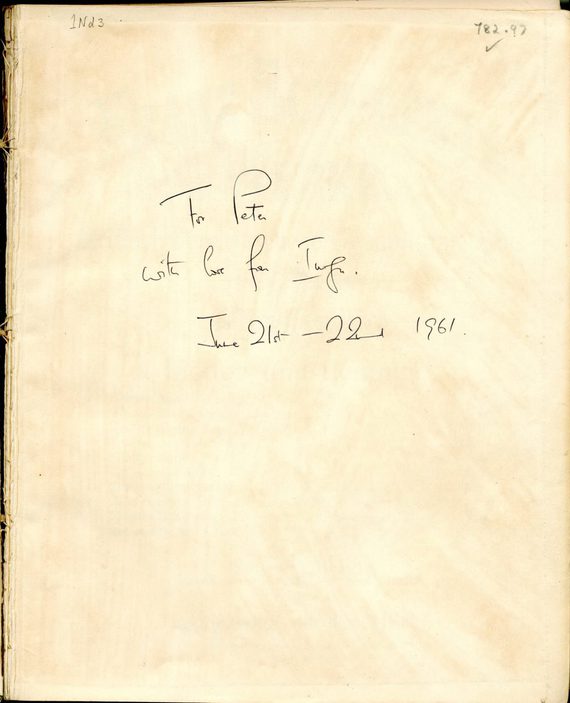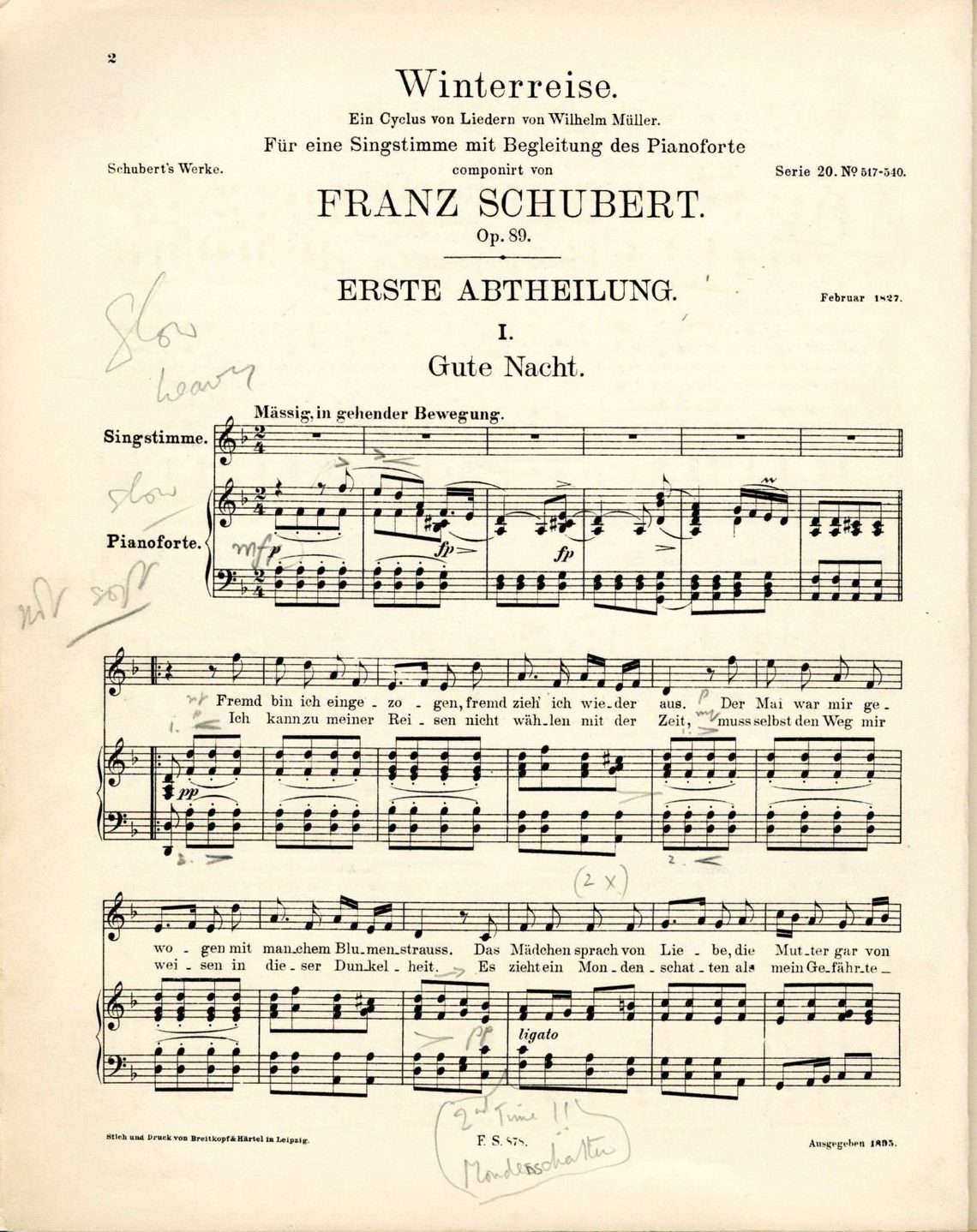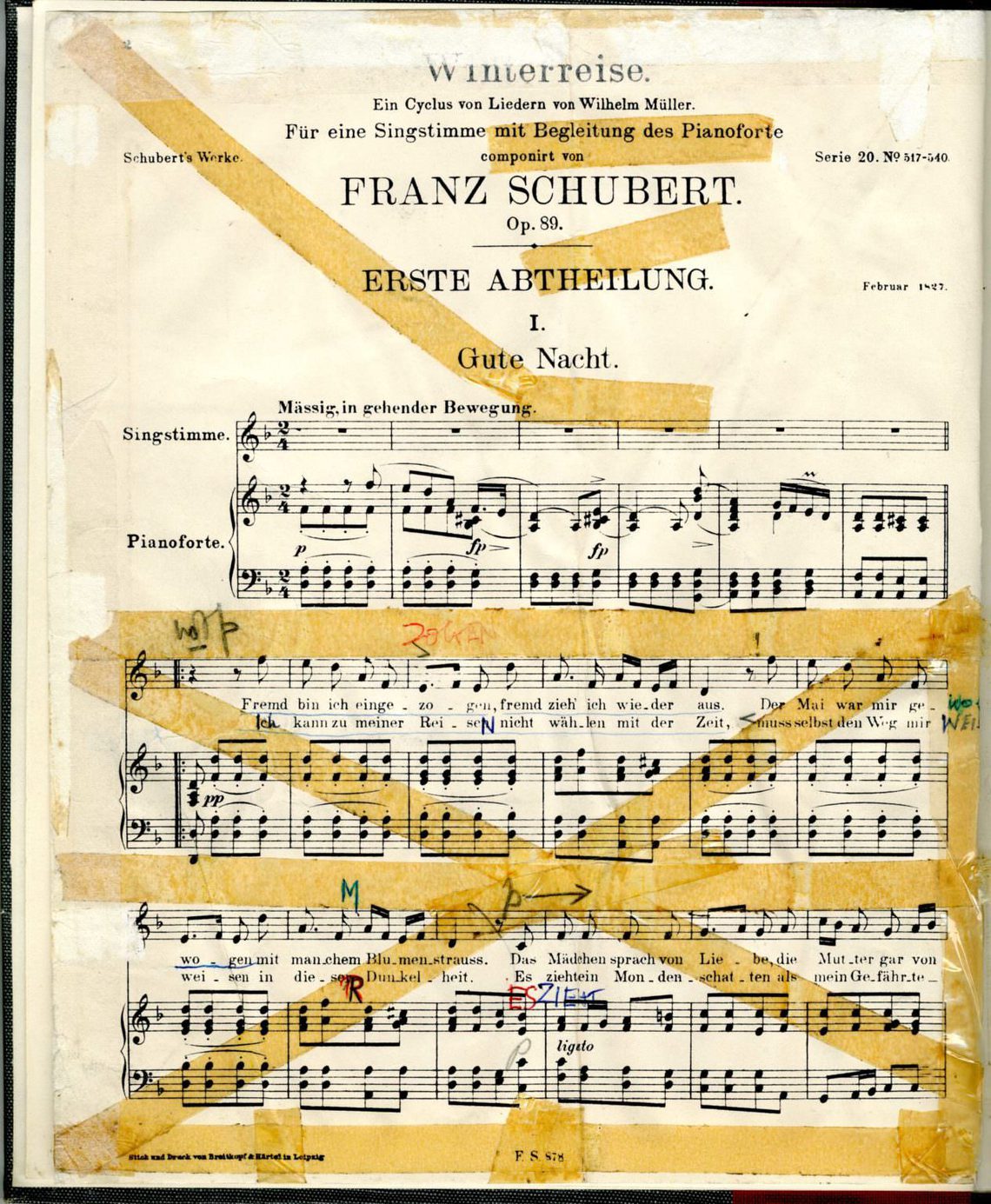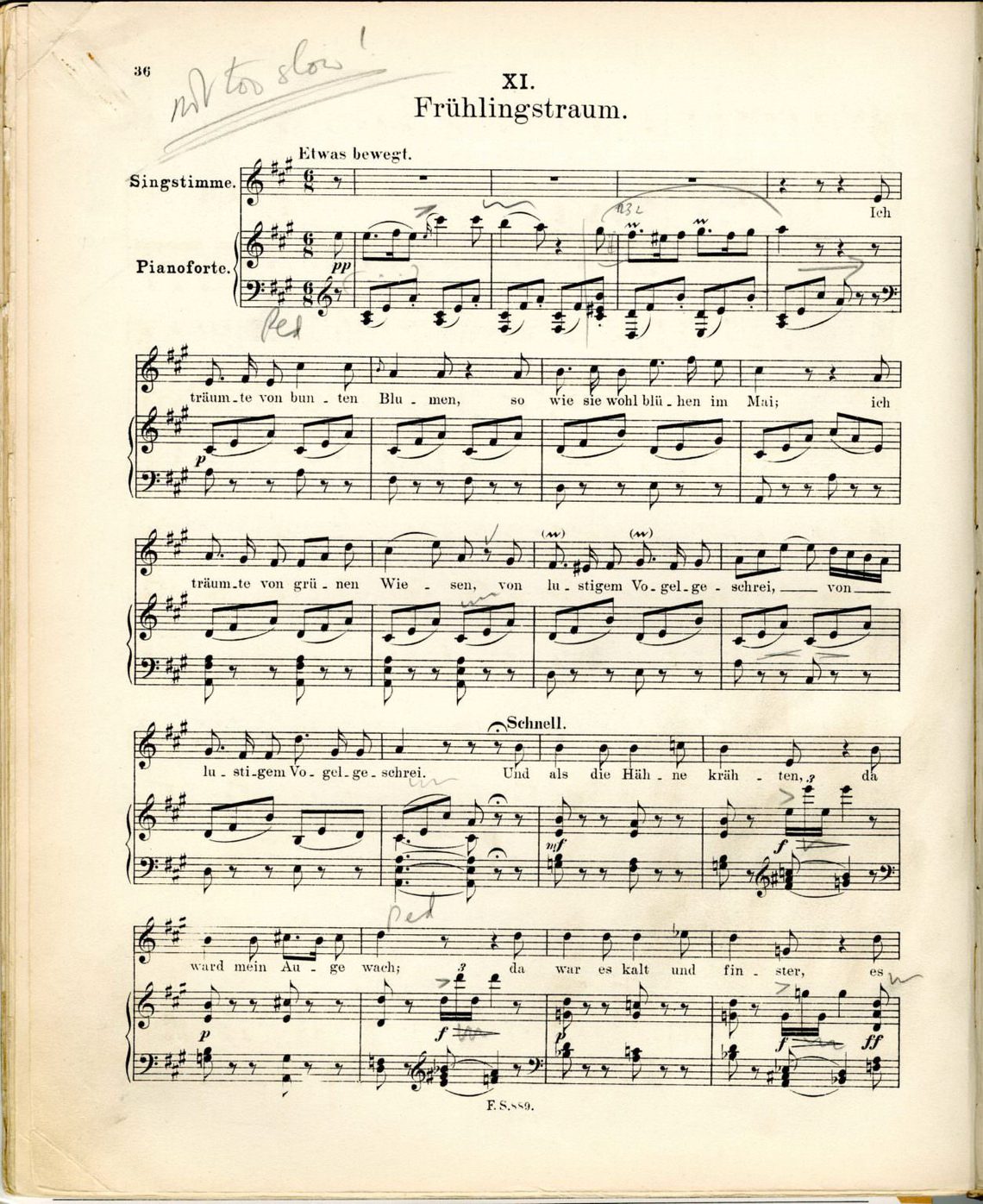Britten and Pears’ first public performance of Schubert’s masterpiece was memorable for various reasons, not least of which is an archive treasure, a ‘stolen’ birthday present.
Britten and Pears’ song recitals were often highlights of the Aldeburgh Festival. The rapport they established on stage is summarised by Britten’s publisher Erwin Stein who, following his 1957 visit to Aldeburgh, wrote they ‘are among the finest performances to be heard […] One can almost omit the word “among” […] surely something that will live in people’s memory’ (Stein to Britten 13 July, 1957).
The works of Schubert were a staple of their musical partnership. Audiences experienced their first Festival performance of Die schöne Müllerin in 1955—a recording of which exists—and would do so again in 1967. The song cycle that is the Grail for many a singer, Winterreise, was a work that Pears felt was wise for him to leave, as far as public performance was concerned, until his voice achieved full maturity. In the words of The Times critic he and Britten ‘pondered for a long time before embarking on this painfully harrowing journey through the midnight of the lost soul.’
That first complete public performance took place in Pears’ fifty-first year, on the 3 July 1961. His birthday, 22 June, usually fell during Festival time. In the lead up to what was for both him and Britten a momentous occasion he was given a memorable gift from his friend Imogen Holst: the Breitkopf and Härtel published volume of Schubert containing Winterreise. Holst’s inscription highlights both the 21 and 22 June, 1961. Schubert featured prominently in Britten and Pears’ lives during that month. On the 20 June they recorded Die schöne Müllerin for a BBC broadcast. On the 21st they performed Winterreise privately at the London home of their friends the Earl and Countess of Harewood. The Festival that year took place from 28 June to 9 July, giving Pears ample time to prepare with full use of his new score. Evidence exists, however, to tell us that Pears’ gift was appropriated by his accompanist.

Inscription from Imogen Holst: ‘For Peter with love from Imogen. June 21st – 22nd 1961.’
Britten and Pears’ library was shared between them. Making use of one another’s books is one thing, but a musician’s music is often distinctly their own. It usually bears annotations and aide-mémoires required for performance. A musician’s score can reveal a great deal about their interpretation. It can act like a teaching voice from beyond the grave, providing later performers with ideas of how to approach a certain piece. Many singers and pianists have visited the Archive Reading Room to study Britten and Pears’ printed scores specifically for that reason.

Pears’ (Britten’s) copy of Winterreise.

Pears’ working copy of Winterreise – plus sellotape!
Pears’ birthday gift score of Winterreise is a case in point. This edition of Winterreise was the ideal size for the piano music stand so it seemingly became the copy Britten used rather than Pears. It is filled with Britten’s pencil markings and provides a glimpse into his technique, timing and at times slight adjustment of Schubert’s music. It is unlikely the tenor regretted the loss of his score. He had another Breitkopf and Härtel edition to work from, and it shows a great deal of wear and (literally) tear. Years of use in performance and teaching warranted conservation so it was eventually bound in new boards. The copious application of sellotape to the first page attests to Pears’ own attempts at restoring it from overuse.
Not surprisingly Pears made numerous annotations in this other (non-Birthday) score in pencil. He also wrote out the text in ink, although of course he sang from memory in public. It’s now possible to read his own interpretation of editorial instructions. For example, the indication at the beginning of Wasserflut to sing Langsam has Pears’ pencil marking ‘Not too’ beside it. Britten’s thoughts on dynamics follow suit. Langsam is also found at the beginning of Einsamkeit, beside which he has written ‘Not too slow.’

Detail of Britten’s markings on the score.
‘… a long-matured and deeply imaginative point of view’ was how The Times described that 1961 Festival performance of Winterreise. ‘[Britten and Pears] narrate the tale as fully and sensitively as musical perception allows.’ (The critic also made special note of their tempi.) Britten’s assistant Rosamund Strode put it more boldly when she said of their performance of Schubert that it simply sounded ‘like the real thing.’ There wasn’t any sense of the songs having been ‘studied or learned,’ just a natural expression of meaning, which gives some indication of their insight into this particular composer’s music.
Following the 1961 recital, they performed Winterreise on three more occasions at Aldeburgh: in 1966, 1968 and finally in 1971, shortly before Britten’s performing career drew to a close. They recorded the song cycle for disk in the Kingsway Hall in 1963 (released by Decca, 1965), as well as for BBC television in a semi-staged recital filmed at the Maltings in September 1970.
BANNER IMAGE OF BRITTEN AND PEARS, 1972 (PHOTOGRAPH: JANE JACOMB-HOOD)
- Dr Nicholas Clark, Librarian
